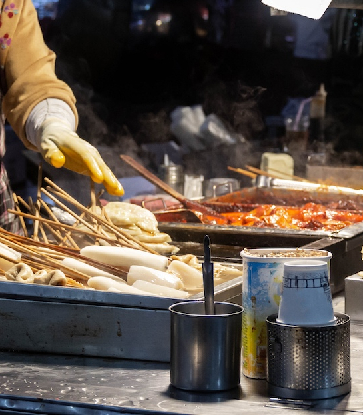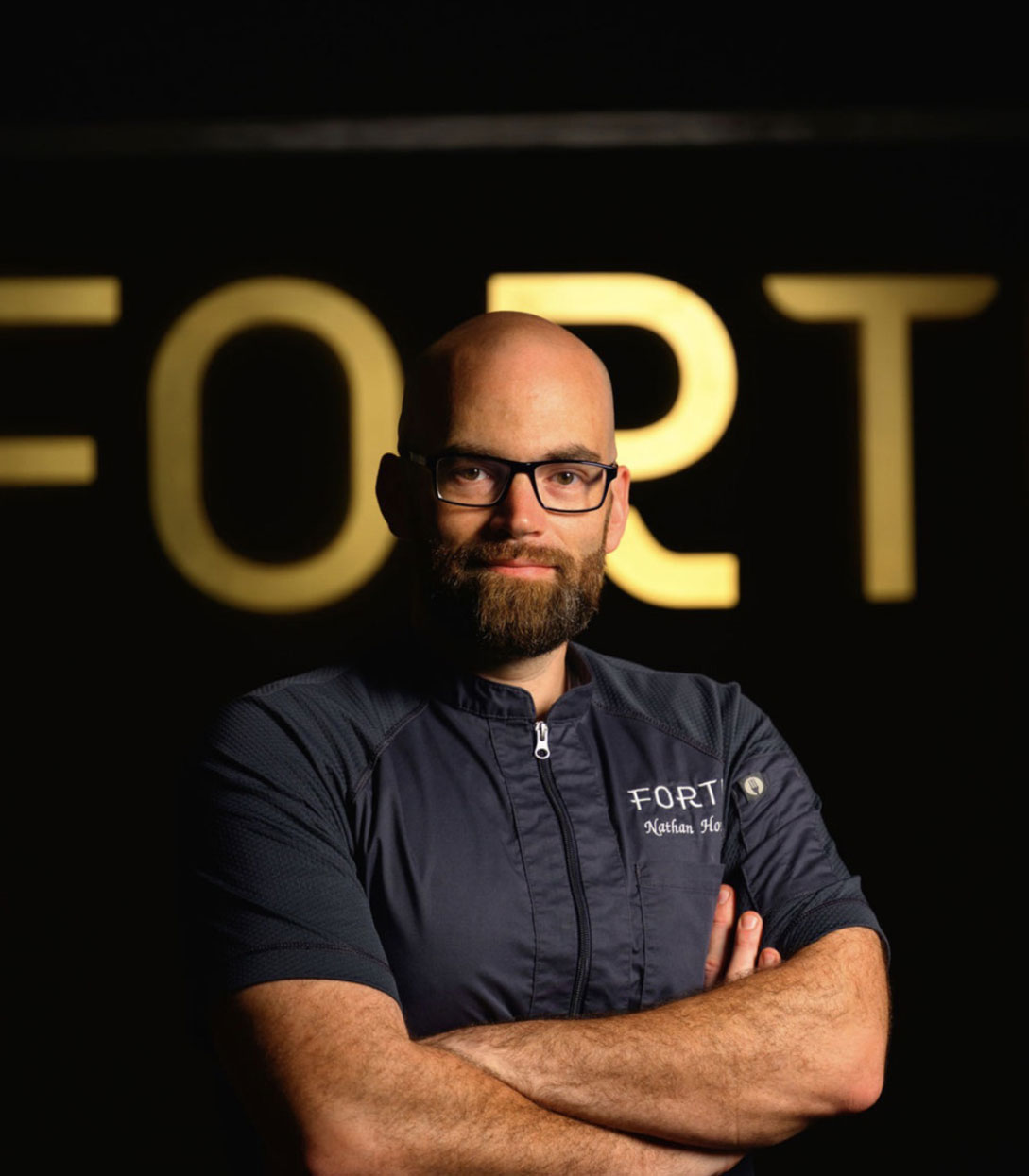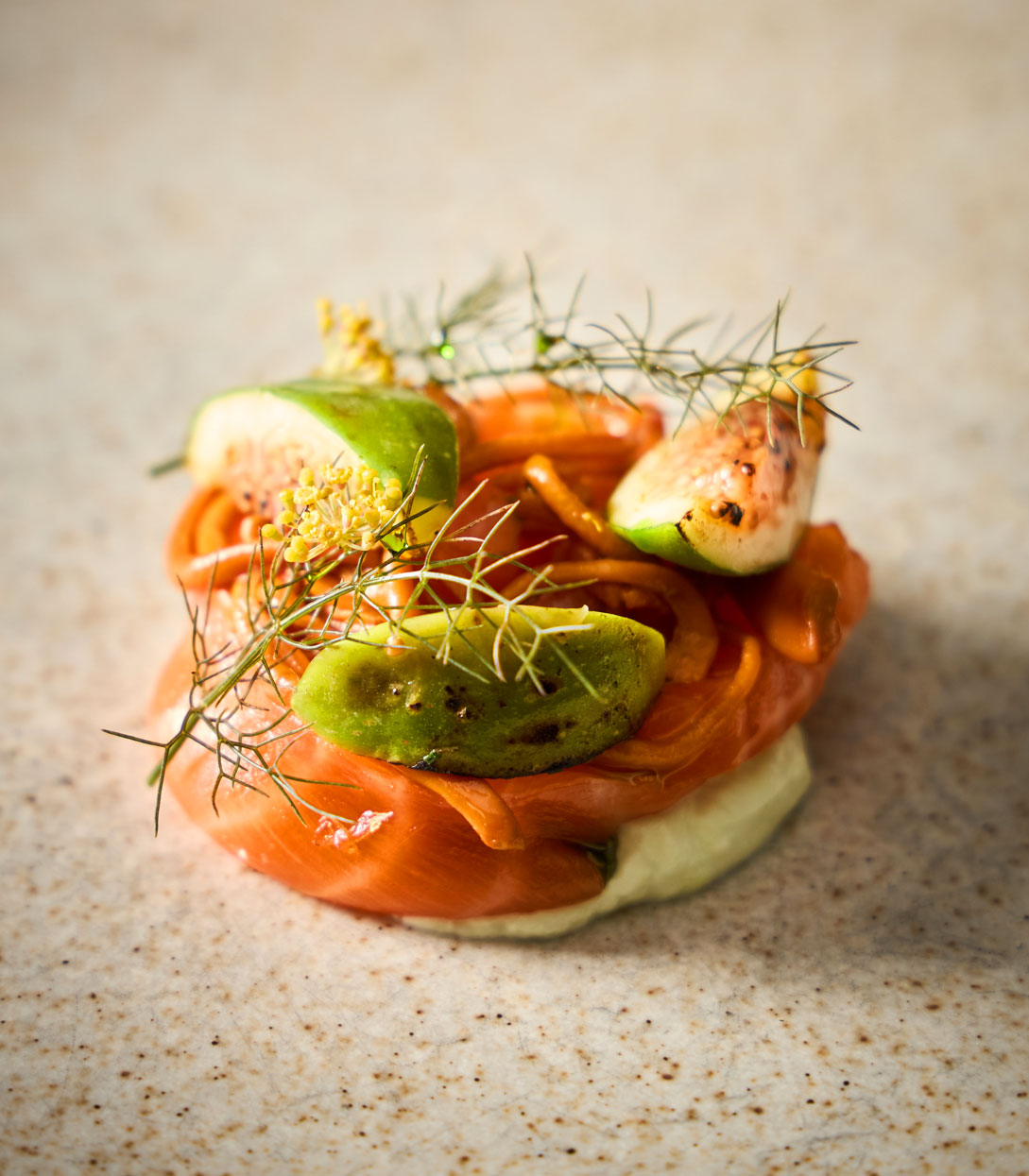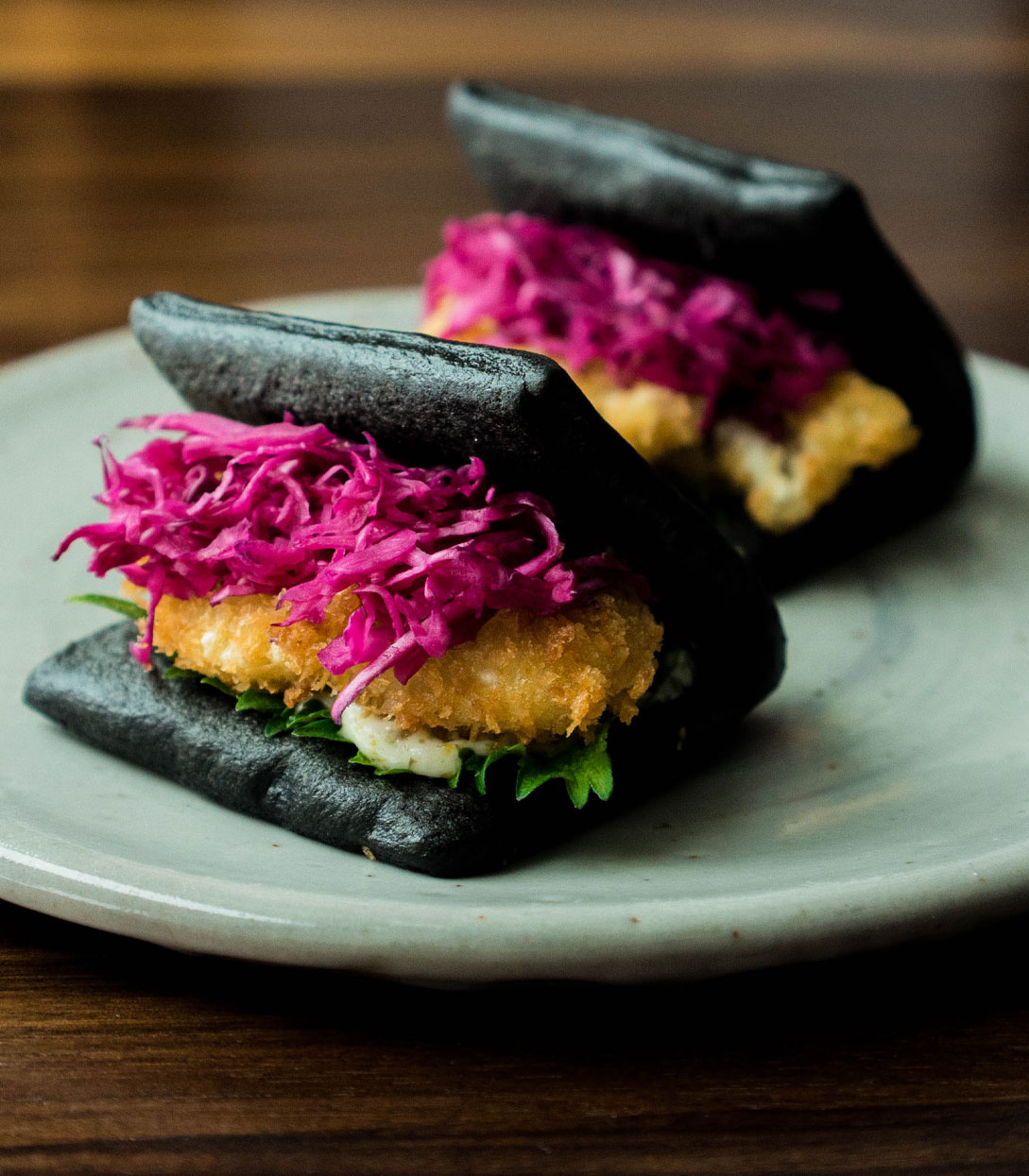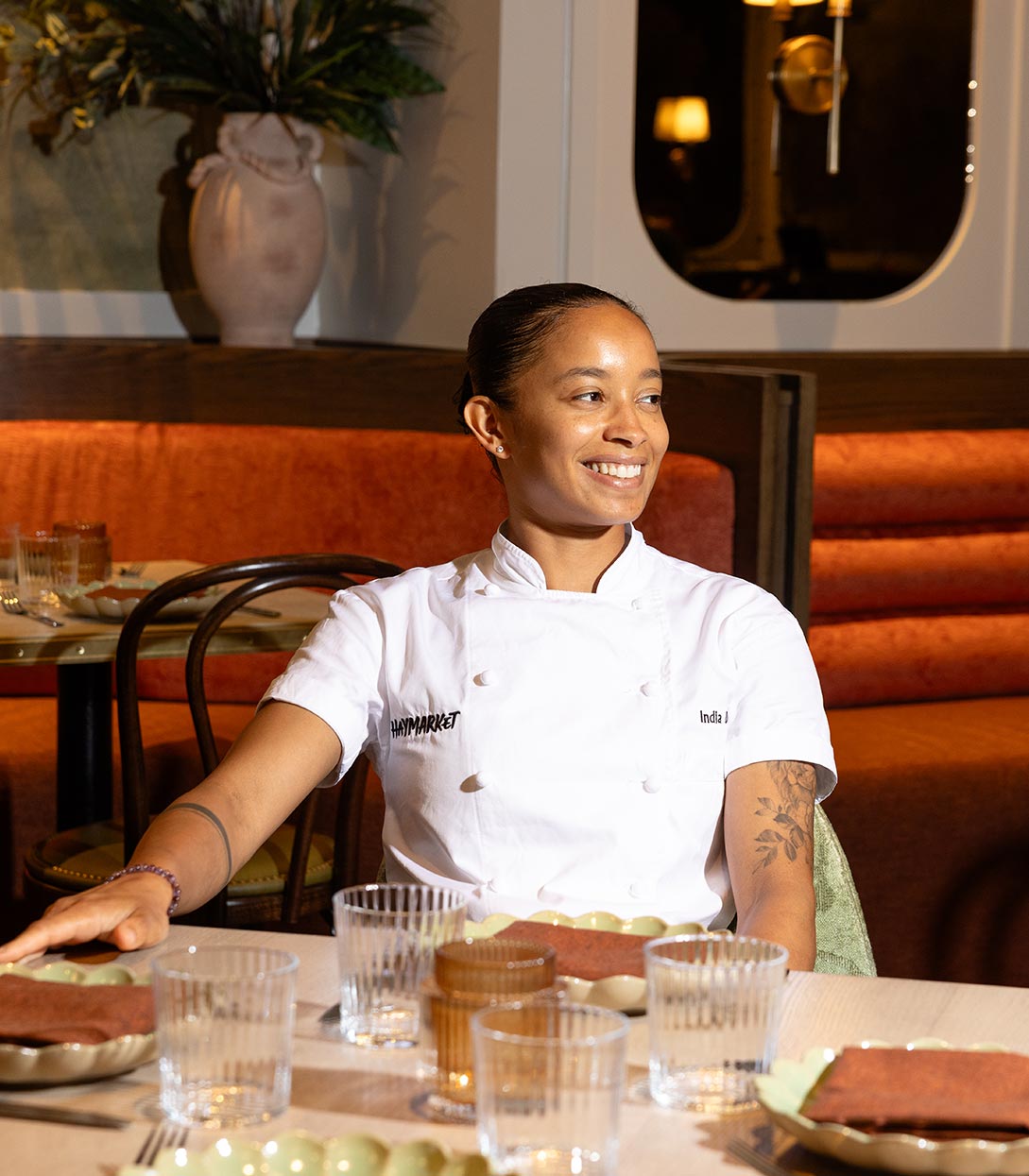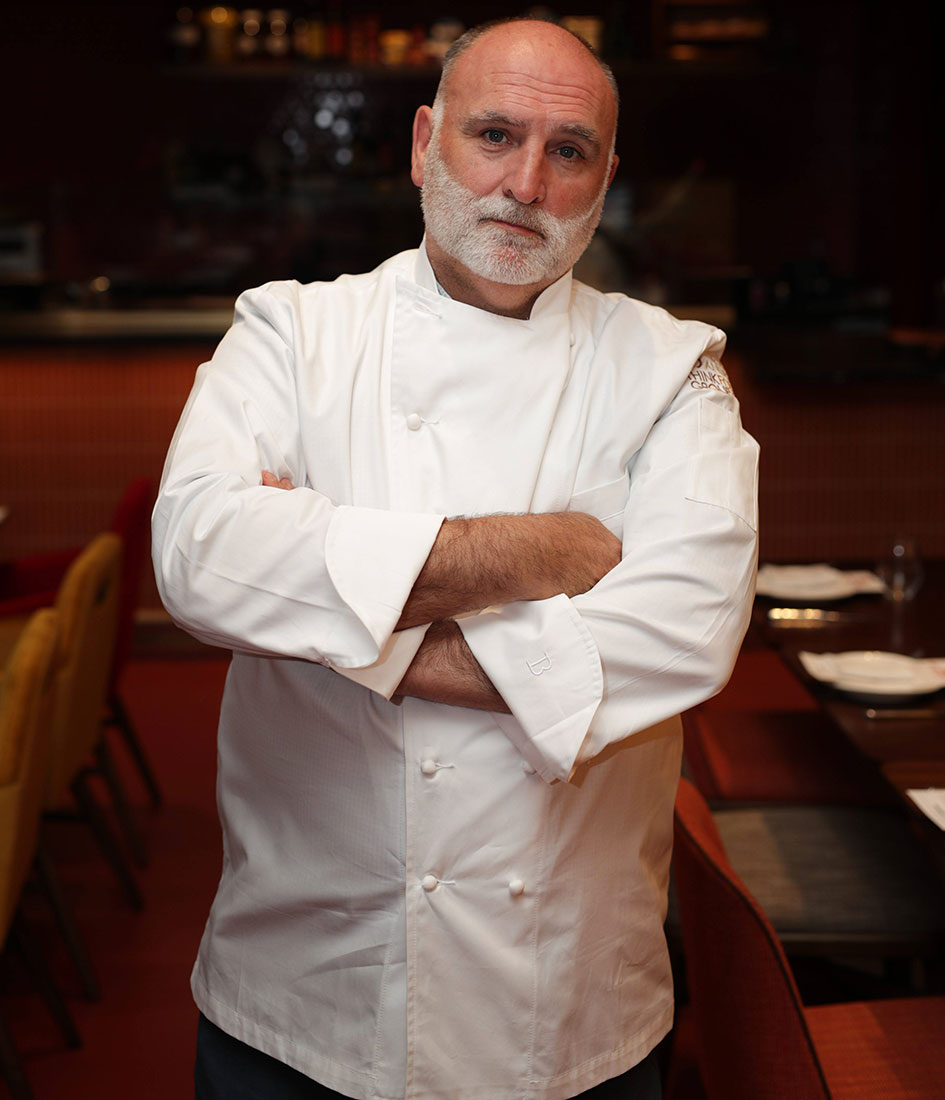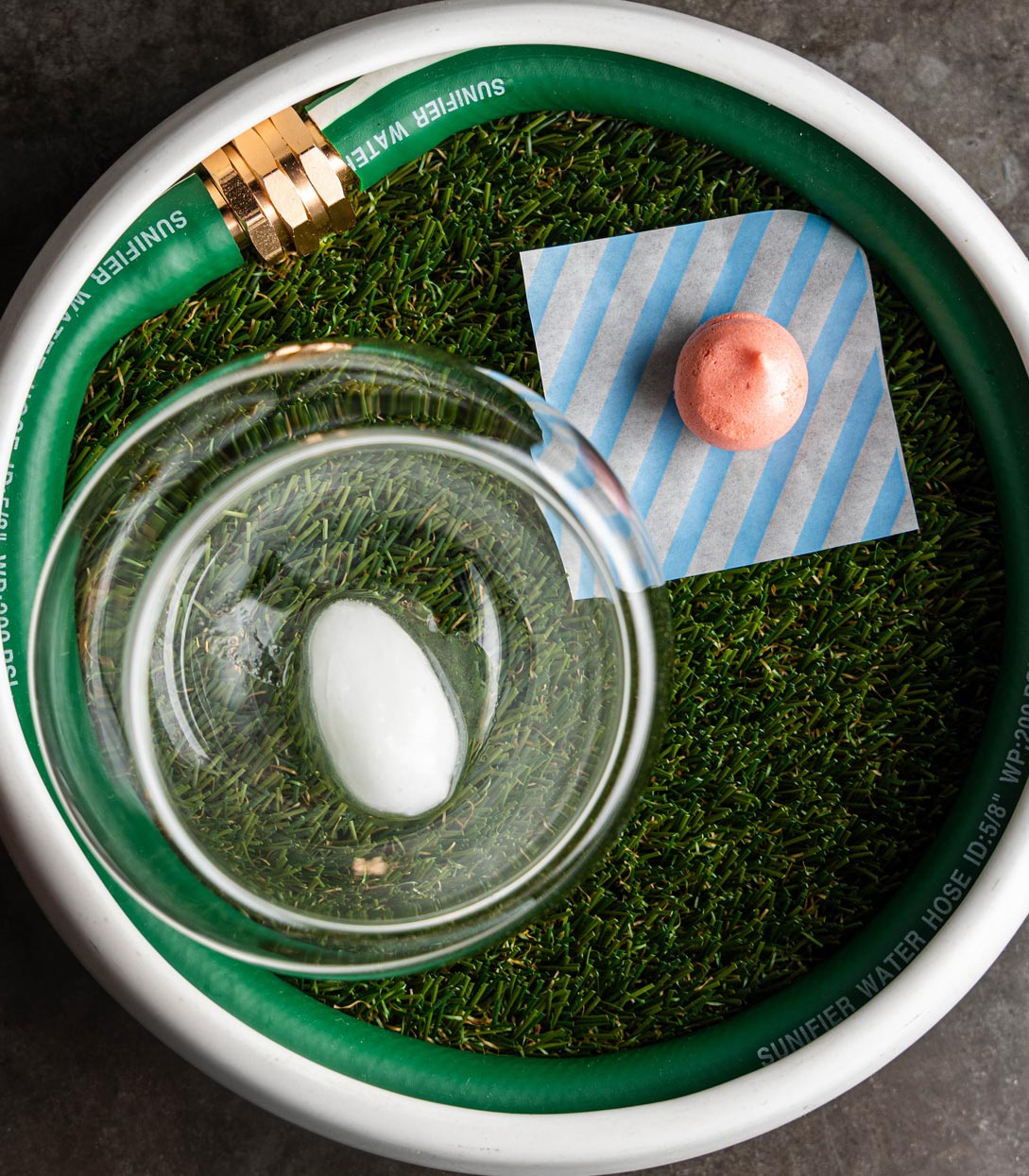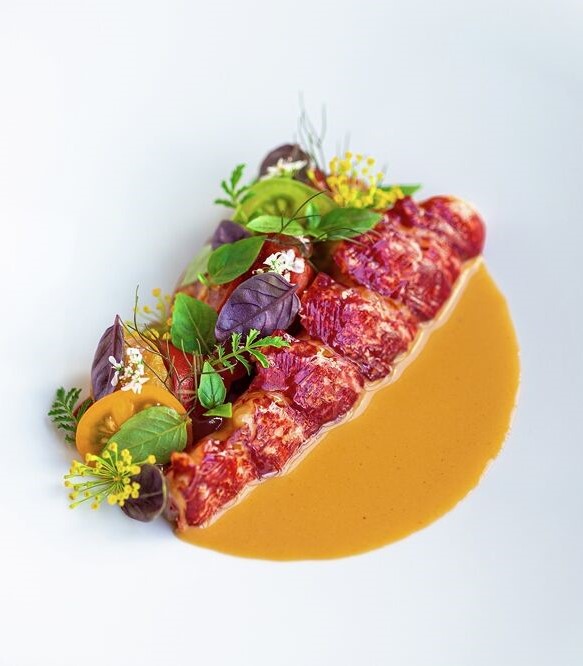Five miles from the heart of Orlando, Certified Naturally Grown Everoak Farm powers some of Orlando’s most flavorful restaurants. Husband and wife duo Mike and Nikki Garcia run the show. “We’re trying to go beyond sustainability. We really want to close the loop on the farm,” begins Mike Garcia.
Starting his career in kitchens, Garcia became curious with how food was grown. Teaching himself, he eventually launched Everoak Farm in 2019, five miles from downtown Orlando. Garcia says, “If you can work in a kitchen, you can definitely work in the field.”
Not only does he grow the freshest and tastiest produce, he does so with the environment in mind. Here are nine ways the Garcias pursue more thoughtful farming:
1. Biointensive Farming
“We do a lot of biointensive planting. The idea is to grow smaller and smarter, and fully capitalize on every square foot. Planting as tight as possible, but without sacrificing our yield,” explains Garcia. “Our garden beds are all tended by hand with hand tools. It's pretty much my wife and me."
2. Pastured Poultry
The chickens help regenerate the land. Garcia explains, “During the summer, the garden goes to rest. We cover crop it and then run pastured poultry through it. They're looking for the grass and grubs. And on top of that, they're dropping the manure, so it's feeding the soil.”
3. Agroforestry
The farm is inspired by Ernest Gotsch’s syntropic agroforestry (crops and trees working together), using techniques like stratification (stacking crops at different depths) and photosynthesis maximization (more sun for plants).
Garcia grows support species such as trees, grasses, and legumes – a natural forest garden. He adds, “I don't spray at all to encourage more life and diversity. Sprays don't choose which insects to kill. Whatever you're spraying is going to kill the good and the bad.”


4. Restaurant Partnerships
Everoak partners with local restaurants, adapting what it grows to what they need, and vice-versa. Fascinated by Orlando’s culinary landscape that showcases Southern, Latin, Caribbean, and Asian cuisines, Garcia is happy to grow produce with origins from around the world.
MICHELIN Green Star Kaya is a Filipino restaurant. Chef Lordfer Lalicon uses Everoak’s green stem cauliflower in his cauliflower afritada (braised cauliflower), purple radishes in the sinigang (sour soup), and gem lettuce in the lumpiang sariwa (fresh spring rolls). He describes, “The green stem cauliflower has such a robust sweet earthiness. Purple radishes have a great bite, spice, and color. Gem lettuce is crisp and juicy.” Garcia also grows a Filipino staple: ube (purple yam). He grins, “[Lalicon]'s actually the one that encouraged me to grow ube.”
Chef Alda Rees of Bib Gourmand The Strand has recently served Everoak’s bok choy, curly kale, daikon, chicken livers, and chicken hearts. She says, “Our experience with Everoak Farm has been phenomenal. When they walk in with a delivery, it’s one of those moments that reminds you of why we are in the business— to feed and nourish people. The produce is always outstanding and fresh— when you see beautiful food you just want to eat it.”
5. Seasonality
Growing crops in season decreases energy needs. Garcia says, “That's the beautiful thing about farming, as you're connected with the seasonality of it. Our prime growing season goes from September into the beginning of June.”
Chef Lalicon explains, “Our menu is designed to take advantage of ingredients that are at their peak locally. We think hyper-seasonally and often switch out ingredients in our dishes to reflect what our farm partners are harvesting.” Chef Rees adds, “Both my husband and I were raised eating seasonally (I guess everyone was back then) so utilizing what’s in season seems natural to us.”
6. Home Kitchens
In addition to serving restaurants, Everoak serves individuals directly. Locals can pick up produce at its weekly farm stand or join its Community Supported Agriculture (CSA) program, which provides 50 members with weekly produce. Garcia explains, “A typical bag would look like a bag of lettuce, a bag of arugula, a bunch of curly kale, a bunch of kohlrabi with maybe some zucchinis, so you just get a whole mix.”
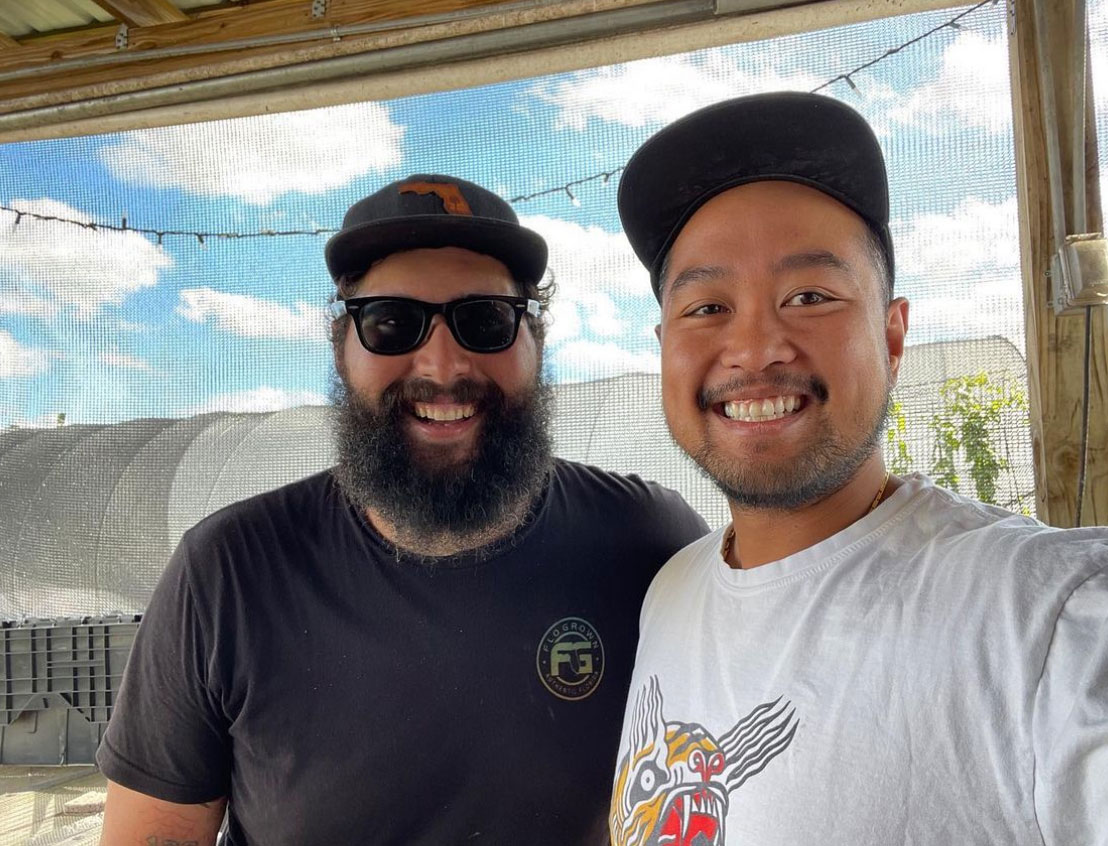

7. Florida Farm Education
“We do farm dinners too. It's more of an educational experience. The whole menu is 90% of what we produce here,” describes Garcia. He teaches about local cultivars built for surviving the Florida heat and pests, such as the South Anna Butternut Squash – a mix between the Waltham Butternut Squash and the Seminole Pumpkin.
8. Composting
“We partnered with O-Town Compost, which collects from hotels, resorts, and the restaurants we serve,” explains Garcia. “When making compost, you're using carbon material and nitrogen material. Our nitrogen [is] wasted food scraps from our community, and our carbon [is] woodchips [from local arborists].”
Chef Lalicon adds, “It’s super cool that we both work with O-Town compost - so some of the byproduct that goes into the compost bin at the restaurant end[s] up nourishing the land that provides us with produce at Everoak.”
9. Community
Born and raised in South Florida to Cuban parents, Garcia has embraced Orlando as his home for over 15 years. The Orlando community has been vital to Everoak’s environmental success. Customers reduce emissions by buying locally, and Florida as a whole is an “ag friendly state” according to Garcia.
Chef Lalicon says of his Everoak neighbors, “Mike and Nikki are the best. They take feedback, are super accessible, and focus on quality. They are growing food in very thoughtful ways, from non-pesticides to rotational cropping.” Rees adds, “Once you meet Mike and Nikki there’s no going back. They are the epitome of what a small local farm should be. They really love what they do, and it shows in their product.”
Garcia concludes, “True sustainability comes at a local level, and you want to keep your community thriving. So, we all need to kind of help each other.”

Hero image: Everoak Farm / Mike Garcia of Everoak Farm





